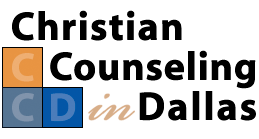I Don’t Know!
Subtitle: “The reality of the counseling process: do counselors have all the answers?”
by Dianne L. Taylor, MA, LPC
In a recent church service I heard three of the most reassuring and discomforting words in the English language. The pastor had started his sermon on prayer in a difficult Gospel passage and then moved to an even more difficult passage. When he turned to the second passage, he very honestly uttered the words, “I don’t know.”
For a moment I felt somewhat deflated. What do you mean you don’t know? What about all those years of studying Greek and Hebrew, all the degrees after your name, years of experience in the pastorate, and those connections with other astute students of the Scriptures? You don’t know?
Then I took another moment to evaluate my response. Would it be reasonable that any one of us would know all of anything? Would it even be good? Would it be reassuring or frightening to think we could know everything about an infinite God, even His word, since we are, after all, His creation and not Him? Isn’t this where faith, searching, and growth comes in?
As I began thinking about this more I thought back to a time when I was a child and I thought all adults knew everything. My parents for sure knew everything; they often told me so! Doctors, of course, knew everything and teachers knew more than everything. Gradually, as I grew older, I began to realize these were all myths. My parents made mistakes and as my ailments became more complex I realized that doctors often need to make educated guesses based on limited information. When I became a teacher myself the myth that teachers knew beyond everything was certainly blown apart.
So how does this all relate to the process of counseling? Many clients enter into counseling believing that the counselor knows everything. If the client lays out the problem directly enough, the counselor will see the solution immediately and solve the problem. Do counselors ever say or think the words, “I don’t know?”
In reality, the counseling process is just that; a process. Yes, counselors study human behavior and treatment planning. They gain experience in seeing patterns of behavior over time and what this means. Christian counselors add to that an understanding of how mankind was created by God and how we are meant to relate to Him and each other. Even with all of this, however, there are times in counseling when the most honest and reassuring answer to a question is “I don’t know.” People are too complex to be understood completely. People are too unique to address with cookie cutter responses to life. This is where the real counseling process begins. Together, a counselor and client embark on a journey of exploration. Not knowing can prod us to search and as we search we learn how to learn more. The counselor brings experience, knowledge, and certain resources to the table while the client brings their unique struggles and questions. Then the “I don’t know” on either side leads to questions which lead to learning, which has the potential to lead us to an enriched relationship with God and others in our lives.
Here’s the best part! Even though life is too glorious and too complex to escape the words, “I don’t know,” God promises to light our pathway as we seek Him. Isn’t it mind boggling to take a step on a pathway lit by an infinite God who desires that we have a relationship with Him? Although we often find ourselves coming to a place where all is not known, the One we trust and who promises to be the “Shepherd and the Guardian of our souls” (1 Pet. 2:25) is the very One who does know it all! All we need to do is believe. While we journey, process, grow, and learn we are safely held in the hands of the One who never has to say, “I don’t know!”
